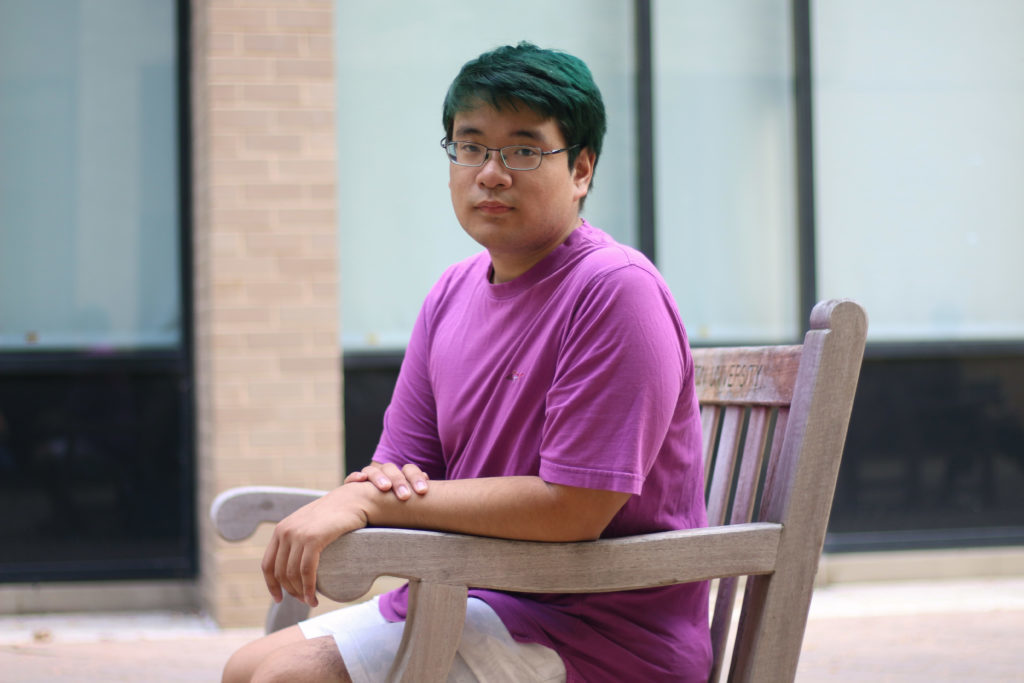Students are pushing officials in the Columbian College of Arts and Sciences to develop an Asian American studies minor.
The Asian American Student Association is working with faculty in the English and theatre and dance departments to create a minor in Asian American studies, which would include courses about cultural representation, immigration and literature, members said. Student leaders said the minor would shed light on Asian American life and culture – a subject they said isn’t comprehensively covered in GW’s current course offerings.
Jeremy Lee, the president of AASA, said the organization launched an online petition last fall advocating for the new minor, which received about 200 student signatures. But he said the group decided to shift from student advocacy work to collaboration with faculty this year because the partnership would give the group more leverage when they propose the minor to administrators in the coming months.
“A minor in Asian studies is important for students like myself to feel like they are being heard and that we do have a voice,” he said.
He said the proposed curriculum includes a variety of Asian American courses focused on literature and creative arts, and the program would also feature an internship and community service component. He added that officials should house the minor in CCAS because “naturally, that is where most ethnic studies are.”
GW currently offers academic programs in the Department of East Asian Languages and Literatures in CCAS, and the Elliott School of International Affairs offers an Asian studies major, which focuses on policy between Asian countries. But Lee said these offerings do not focus on ethnic studies – and “the history and the cultures are different.”
“I think we need a lot more ethnic studies classes just because the experience and the history surrounding an Asian American or hyphenated American is really different from, say, an Asian from abroad,” he said.
Lee said AASA spoke with students who want to propose the minor and officials who support the proposal, like Michael Tapscott, the director of the Multicultural Student Services Center, and Caroline Laguerre-Brown, the vice provost for diversity, equity and community engagement.
Tapscott said he met with the group and told them to “follow their passion and wished them luck as they pursued this idea with the leadership in CCAS.”
Laguerre-Brown said that she met with the group of students and suggested they convince faculty to support their proposal for a new minor.
“GW is a diverse campus that thrives on having a broad range of perspectives,” she said. “It’s great to see a group of students conducting research to propose an Asian American minor.”
Elizabeth Chacko, the CCAS associate dean of undergraduate studies, said officials have not yet heard from students interested in minoring in Asian American studies. But she said the process to create a new minor or major typically begins with students designing a course of study through the special interdisciplinary major option in CCAS – which has sometimes led to institutionalized majors or minors, like the Africana Studies Program.
“We always appreciate when our students come to us with a suggestion that would enhance their academic experience,” she said. “Creating a new major or minor is an iterative process and is reflective of strong student interest.”
Priya Kavanakudiyil, the vice president of AASA, said the group is also working to push the proposed minor on social media with a Facebook photo series and the hashtag #GWAsAmStudies, which she said makes the campaign “more relatable” since the photos feature students advocating for the program.
“The photo campaign is our way of showing these are real people who are affected by lack of resources or lack of representation at GW, and this is how they feel,” she said.
Some of the posts include captions like “GW needs Asian American studies because I no longer want to hear, ‘Wow! You speak English with no accent!'” and “GW doesn’t teach me that Asian Americans have a voice.”
Patricia Chu, an associate professor of English, said students in the AASA approached her this semester to work with them on developing the curriculum for the minor.
“The minor would provide students with a history and vocabulary to validate and contextualize Asian American experiences that might otherwise be dismissed or erased as merely personal issues, but are actually part of a larger, more complex picture of the ways that society constructs racialized subjects,” Chu said in an email.
Chu said the curriculum in the minor would provide an understanding of social issues like immigration, racial profiling, affirmative action and perceptions of Asian Americans in classrooms.
“Students can gain academic credit for courses that will provide tools for them to articulate, validate and analyze Asian American history and experience, to talk about race and ethnicity,” she said.
Chu added that she worked with Dana Tai Soon Burgess, a professor of dance, to develop the minor, but they have not formally met with Chacko, the CCAS associate dean of undergraduate studies, about the proposal.
Burgess did not return multiple requests for comment.
Ciara Regan and Tiyobista Daniel contributed reporting.




